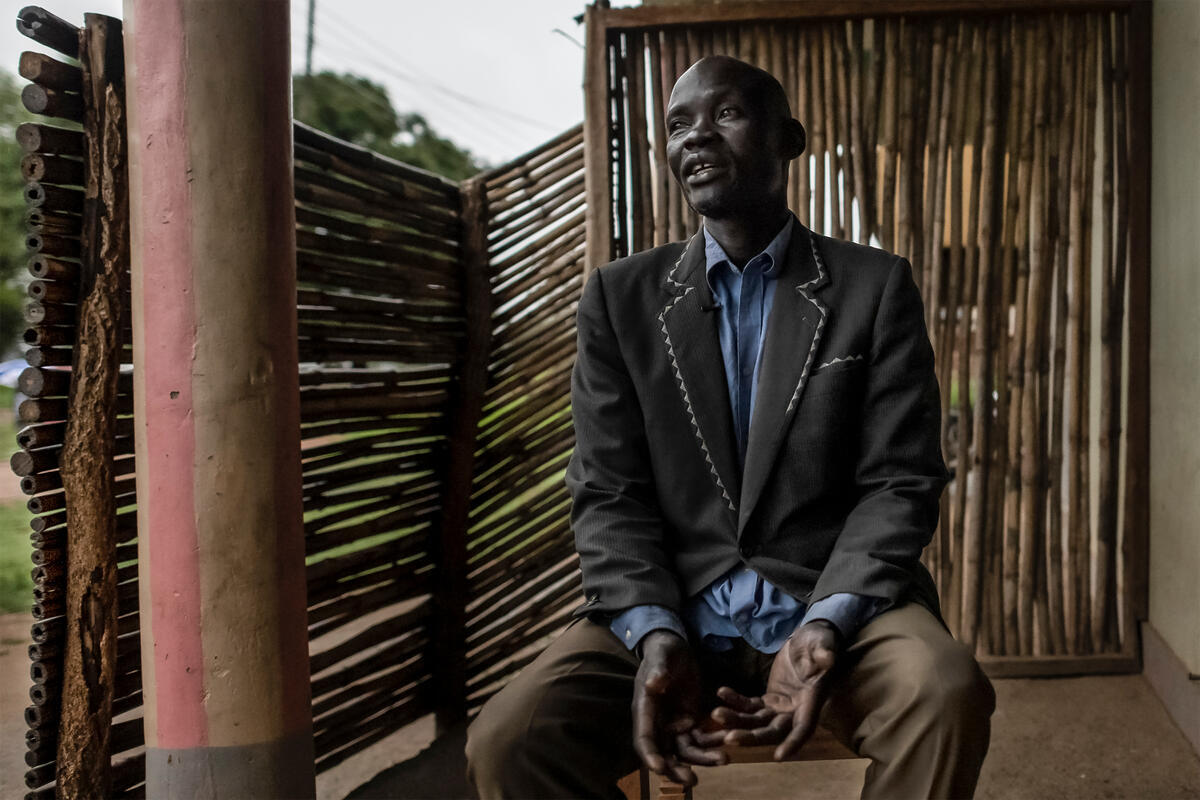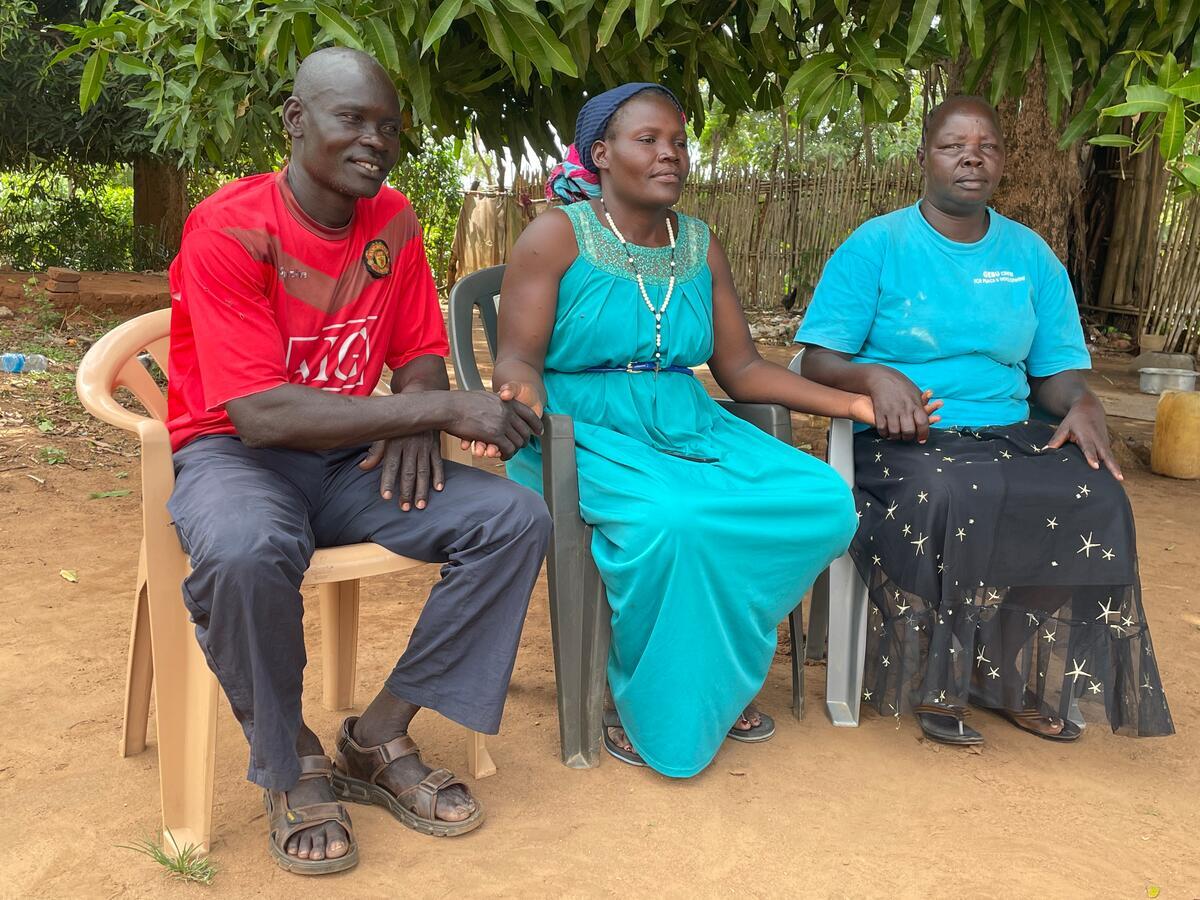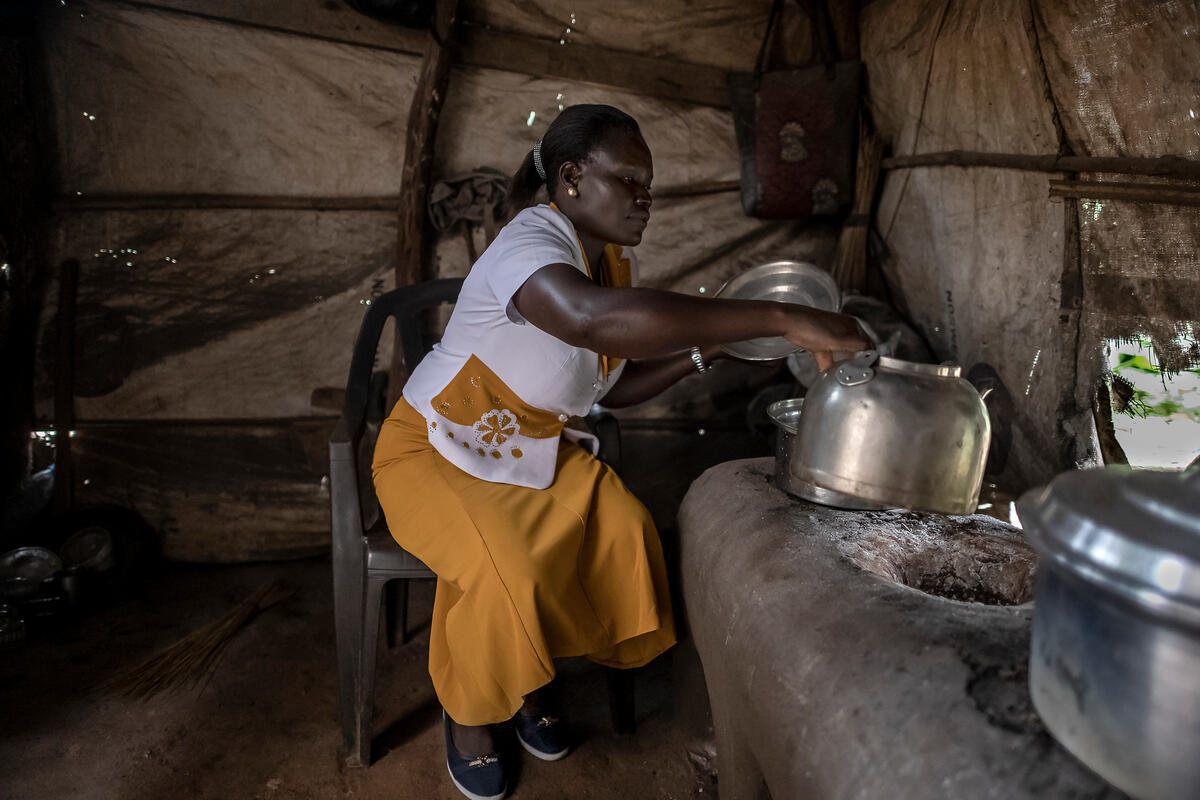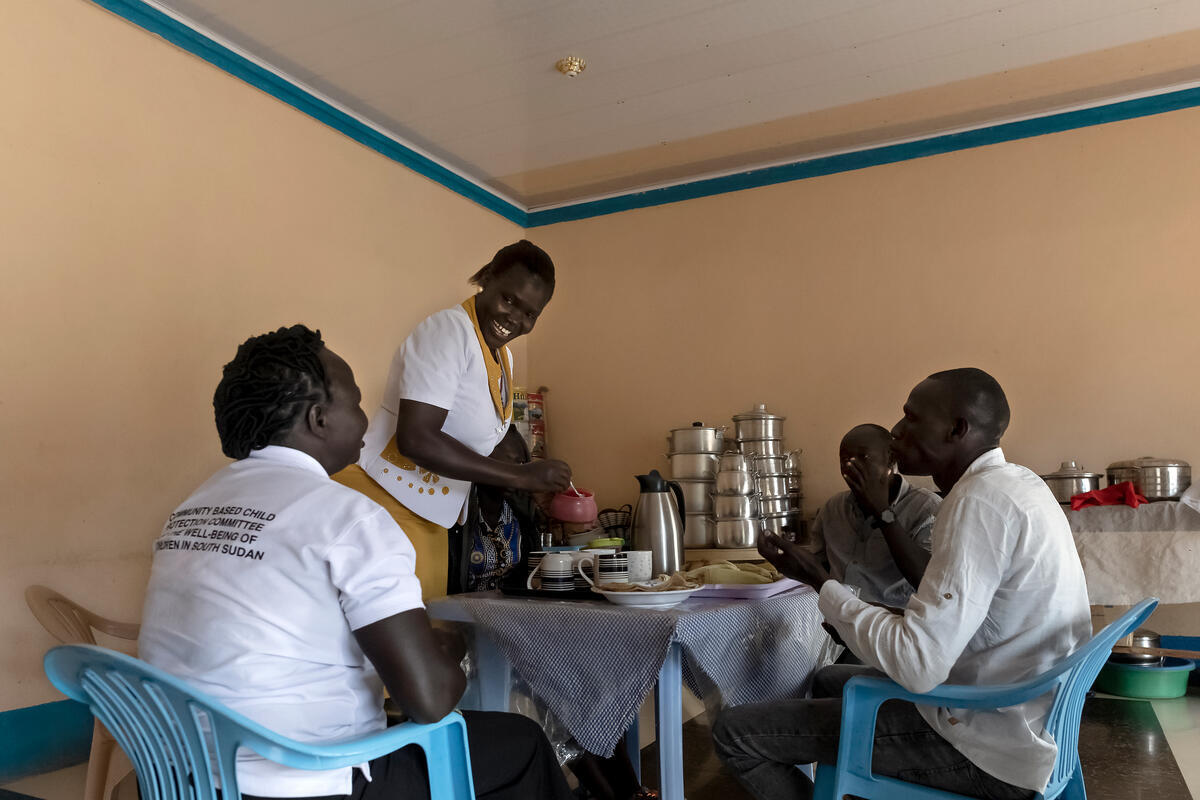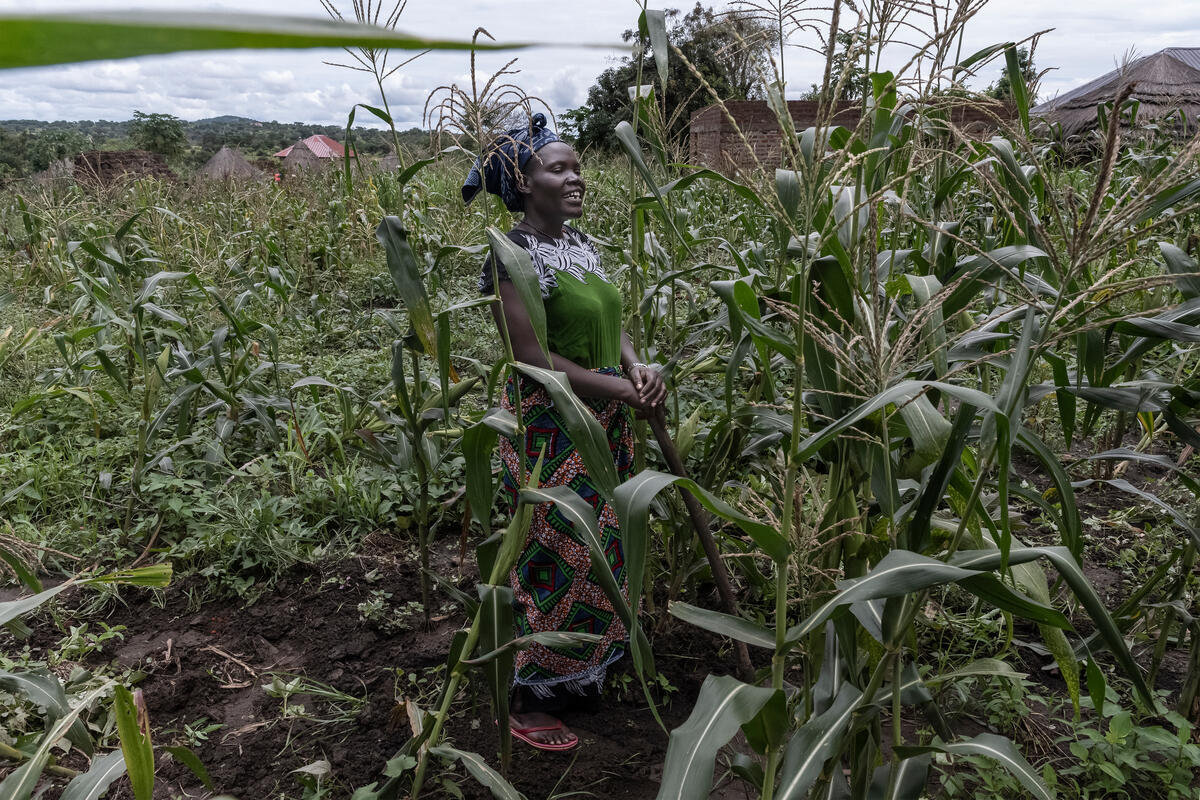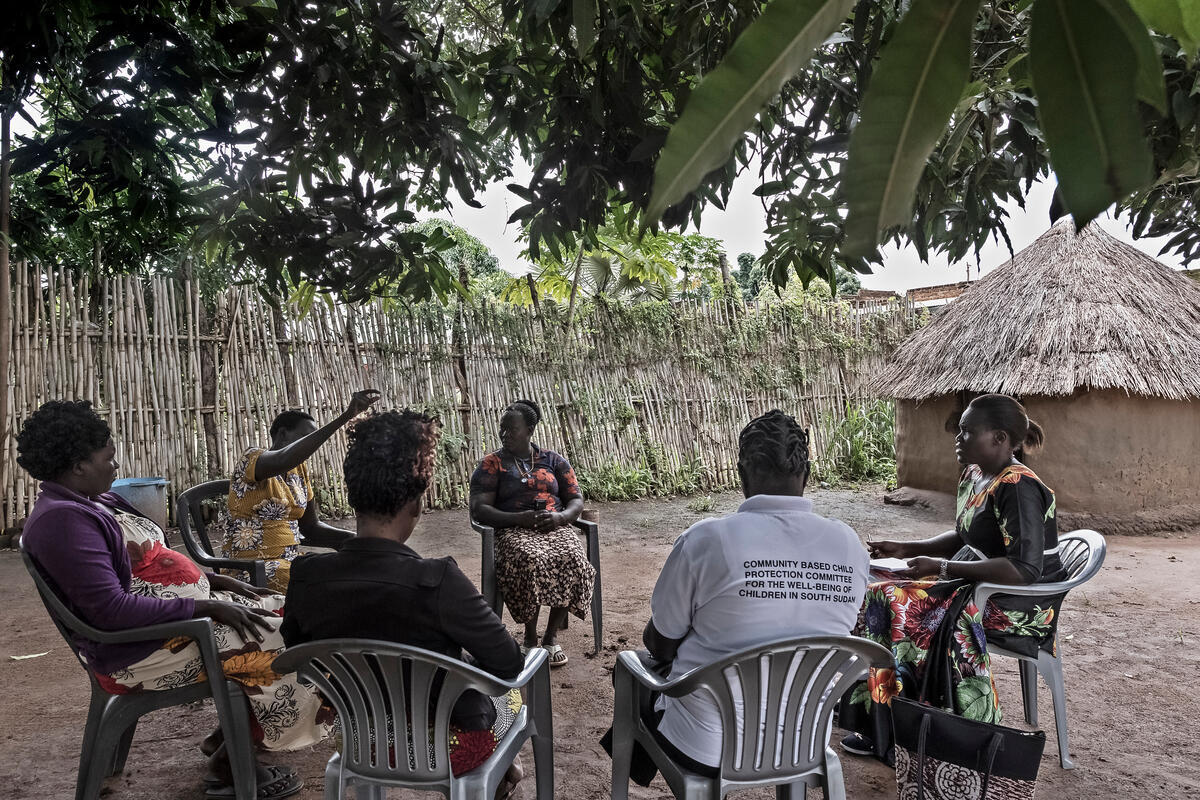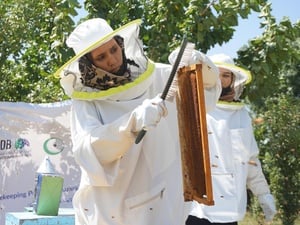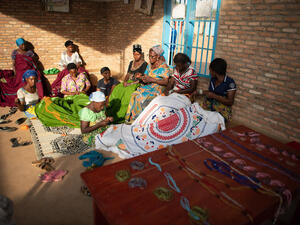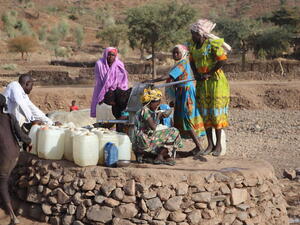Weary of men's wars, South Sudan's women risk all for peace
Tired of conflicts that left villages smoking ruins, tired of rapes and assault by the marauding combatants, tired of running across borders as a refugee, mother-of-four Anyek Rose John had had enough.
She and five other women set out on foot for a rebel base in this remote corner of South Sudan to demand their husbands, sons, brothers and neighbours lay down their arms and return home.
As they stepped out of the bush, one fighter at the camp recognized his mother, one a sister, another a neighbour from the community where he had been forcibly recruited by the rebel group two years previously.
“Please, you are our sons, you are not to go again to the bush. We have been running to Uganda and to Kenya for very many years, and now we don’t want to go back,” Rose told them. “You have to come back so that we can be in our homes.”
Among the 120 fighters at the scrub-ringed camp was Francis Otto Okumo. He knew Rose and some of the other women from the local villages.
“They were our mothers, they were our sisters. We put down our guns. We knew they had come to take us home,” recalls Francis. “I cried and cried. I did not want to be in the bush anymore.”
After two more visits to the camp and a government amnesty, the rebels disbanded in 2017, handed over their weapons and headed back to their homes in Magwi County. For Rose and the women, it was a win that would lead to others in the years that followed.
She formed the Magwi Payam Women’s Association in 2019, an independent community group based in Magwi, the seat of the county of the same name in the country’s rugged southeast.
The group now has 35 members – among them six returned refugees, including Rose, who spent more than a decade in Uganda. They proactively seek out opportunities to resolve conflicts in the area.
"We really need peace, we want our land to be peaceful."
South Sudan is a fragile country that has struggled to achieve security and overcome political and economic challenges since it gained independence from Sudan in 2011.
The concerted drive to make peace in Magwi follows a history of violence reaching back years. Before the more recent clashes, it was the site of attacks by the Lord’s Resistance Army of Joseph Kony, notorious for committing atrocity after atrocity in Uganda, DR Congo and Central Africa.
“For us, we don’t wait. When we see things are not moving well. We have to sit as a group and we have to look for the way forward, for the solution,” Rose explains. “We really need peace, we want our land to be peaceful.”
Word of the Association’s success spread after Rose took part in local radio talk shows in Magwi, where she runs a small diner, aptly named ‘Unity.’ Her phone started to ring, with requests for mediation in a wide range of disputes.
One woman sought help with a boundary dispute; another mediation after her estranged husband sold off a property they jointly owned. Yet another got in touch because she wanted to use family planning, against her husband’s will.
To end the boundary spat, one neighbour agreed through mediation to concede a strip of land to the other. Once contacted, the errant husband returned to his wife and repurchased the land he sold without her consent. The couple battling over contraception agreed to reconsider having another child after one or two years.
“We find an issue, develop (a discussion) and come to a common understanding,” says Rose. As word of their success spreads, county residents have increasingly turned to the group for mediation rather than approaching the courts, Rose says, as they are trusted, they do not charge fees or levy punitive fines.
“Even men, some of them come to us … because they know we are helping people in the community, and we never refuse (requests),” she says.
Often, those who receive help then opt to pay it forward, among them Francis. After returning from the bush war in 2017, he sought and found forgiveness from the community he harmed. He has since adopted seven orphans, whom he raises with nine of his own children on a smallholding.
He also reaches out to boys in the community to dissuade them from taking up arms, and calls for support for returning combatants to help them transition back to civilian life. “They need help to bring their minds back,” he says.
Mother-of-11 Acha Josephine Abui, is another beneficiary. After contacting the Association for help with a marital problem, she felt emboldened to seek out and contact her eldest son, who had joined an armed group in 2016, abandoning her infant grandson.
“I told him: ‘You are making a mistake, you must come back, care for your son and make a better future,’” Josephine says, noting that he is now back in school and raising his boy. “He knows he wouldn’t be alive now. He now says he wants to make me proud, and not cause me pain,” she says.
Some 2.3 million South Sudanese are displaced across five neighbouring countries as refugees, while more than two million people are displaced within the nation’s borders.
UNHCR, the UN Refugee Agency, is committed to helping those who return voluntarily to South Sudan achieve a safe and dignified life through support for peacebuilding, governance and livelihoods in Magwi and other “pockets of hope” across the country.
"In Magwi, we have peace."
Together with the government and UNMISS, the United Nations’ Peace Keeping Mission to South Sudan, it recently convened a community meeting in Magwi to reinforce dialogue as an alternative to conflict. As many as 600 people attended, freely sharing their views.
UNHCR is also working directly with the Women’s Association, to provide business skills training and start-up capital to for tailoring and other small business activities, with the aim of helping its members to achieve a secure income.
The support comes at a time when the group is looking to expand its work outside Magwi, to offer its hard-won experience in grass-roots conflict resolution to other parts of the country where strife and deadly violence are ongoing.
“In Magwi, we have peace. We look at these other places in South Sudan where there is always conflict, war,” says Rose, sitting in the shade of a mango tree behind her diner, together with Francis and Acha.
“These people have no other training … or any other awareness on peace given to them. But we have the knowledge. We have to give that knowledge and preach the word of peace,” she adds.
Former combatant Francis, who continues to support the association’s work, agrees: “I learned to give up arms, to come home, we are in peace. Other people can learn as well.”
This story is part of a series about the "Pockets of Hope" initiative in South Sudan.



